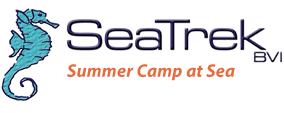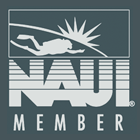We’ve all seen the surge of “sustainable” products: metal straws, bamboo toothbrushes, reusable grocery bags – but how and why would we commit to a sustainable life?
What is sustainability? You could google it or ask people who model it in their lifestyle, but you’ll find a standard definition: it’s the idea that by controlling how we purchase and use goods, we can keep those goods around for a long time. Essentially: If we only eat tuna, there will be no tuna left. If we limit our tuna consumption, we can have tuna around for a long time.
Here are a few of the easiest things to limit your consumption of in today’s world:
- Single-use plastics. It is easier than ever to get a reusable water bottle, sandwich bag, straw, grocery bag, shampoo/conditioner bar, etc. Choosing reusable products over single-use products is an effective way to limit the amount of plastic that gets released into the ocean, which breaks into tiny pieces and gets eaten by marine life.
- Water. This doesn’t mean stop drinking water, SeaTrek staff will be the first to tell you to stay
 hydrated! But In the world, there are already cities facing freshwater shortages, shutting off the water when you brush your teethor taking a ten-minute shower instead of a forty-minute one makes a difference! Limiting water consumption ensures that supply can meet demand.
hydrated! But In the world, there are already cities facing freshwater shortages, shutting off the water when you brush your teethor taking a ten-minute shower instead of a forty-minute one makes a difference! Limiting water consumption ensures that supply can meet demand. - Fossil fuels. Instead of driving: walk, bike, take the bus. Fossil fuels contribute to climate change and global warming – the less we use, the better.
- Mass-produced meat. Whether or not you have an issue with the ethics of it, creating a hamburger takes 660 gallons of water (this includes irrigation of the field, drinking, and processing water for these animals). A great way to ensure that we’re supporting sustainable choices is by eating locally.
- Use the internet! * This actually isn’t a thing to limit, but one to exploit. * There are countless blogs, apps, and websites that can guide you to a more sustainable lifestyle. Two of my favorites below:
- Seafood Watch: This app is a guide to sustainable seafood, updated continuously by the Monterey Bay Aquarium! You can search for any seafood and get d

ata on how sustainable it is at that time. If it isn’t a good option, the app will give you a list of alternatives.
- Better World: This app took into account human rights, environment, animal protection, community involvement, and social justice and scored several well-known companies. Before you buy something, you can search for the company and see what grade they got!
- Seafood Watch: This app is a guide to sustainable seafood, updated continuously by the Monterey Bay Aquarium! You can search for any seafood and get d
My advice to anyone trying to live sustainably is to take baby steps. Becoming an entirely sustainable human does not happen overnight, not even close. It took me years after choosing a career in marine biology before I became a vegetarian.
I try to be imperfectly sustainable: I am not a perfect model for a sustainable lifestyle, but I’m trying. I switched one thing at a time, grocery bags, taking the bus, eating sustainable local foods… taking baby steps towards the kind of world I wanted to live in. I’m doing a lot more to save the earth today than I was a year ago, all by taking baby steps. I think everyone has a little “I want to save the world” in them, and the crazy thing is that we can save the world – little by little.
Share how you practice sustainability on Facebook, Instagram, and Twitter and stay tuned for more fun blogs and events near you.




